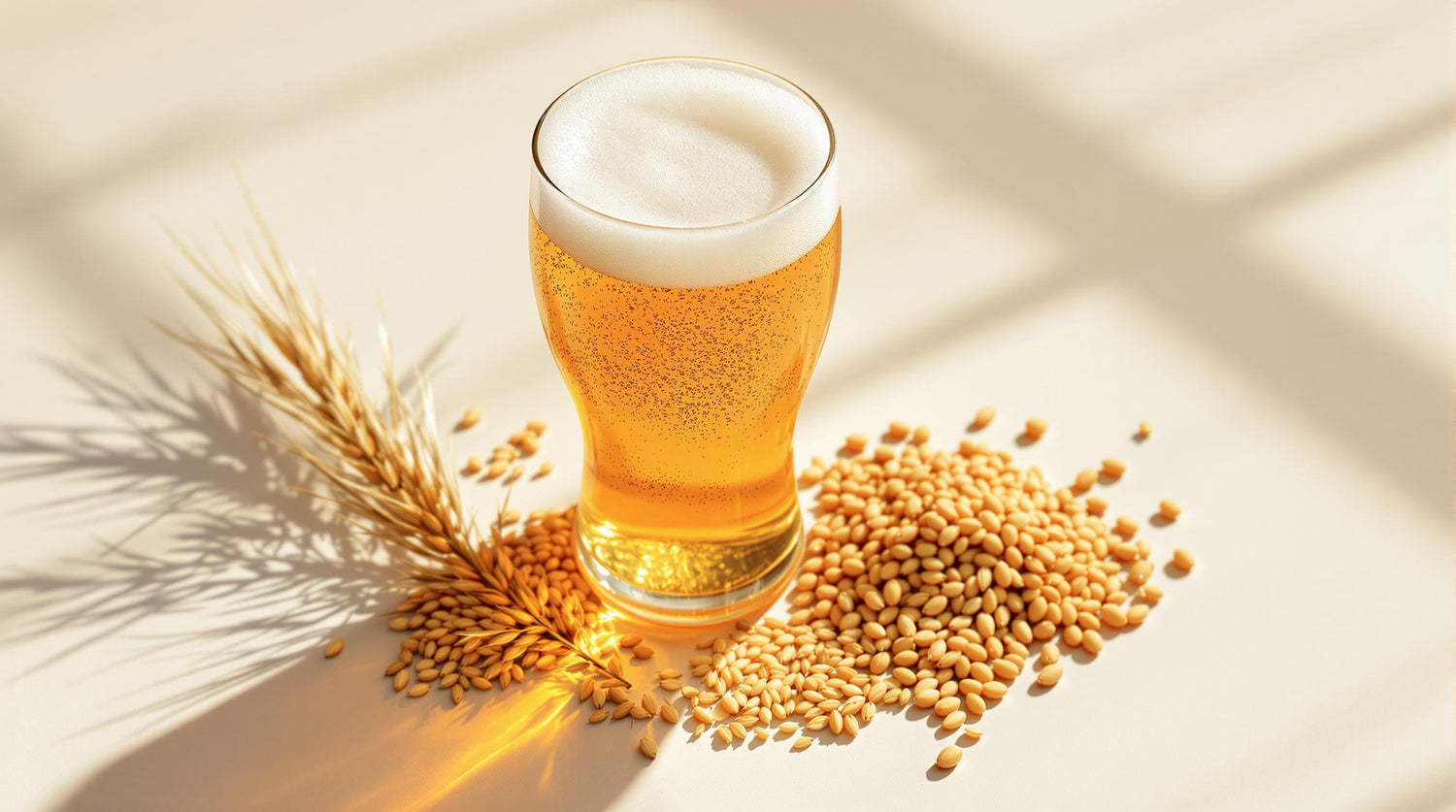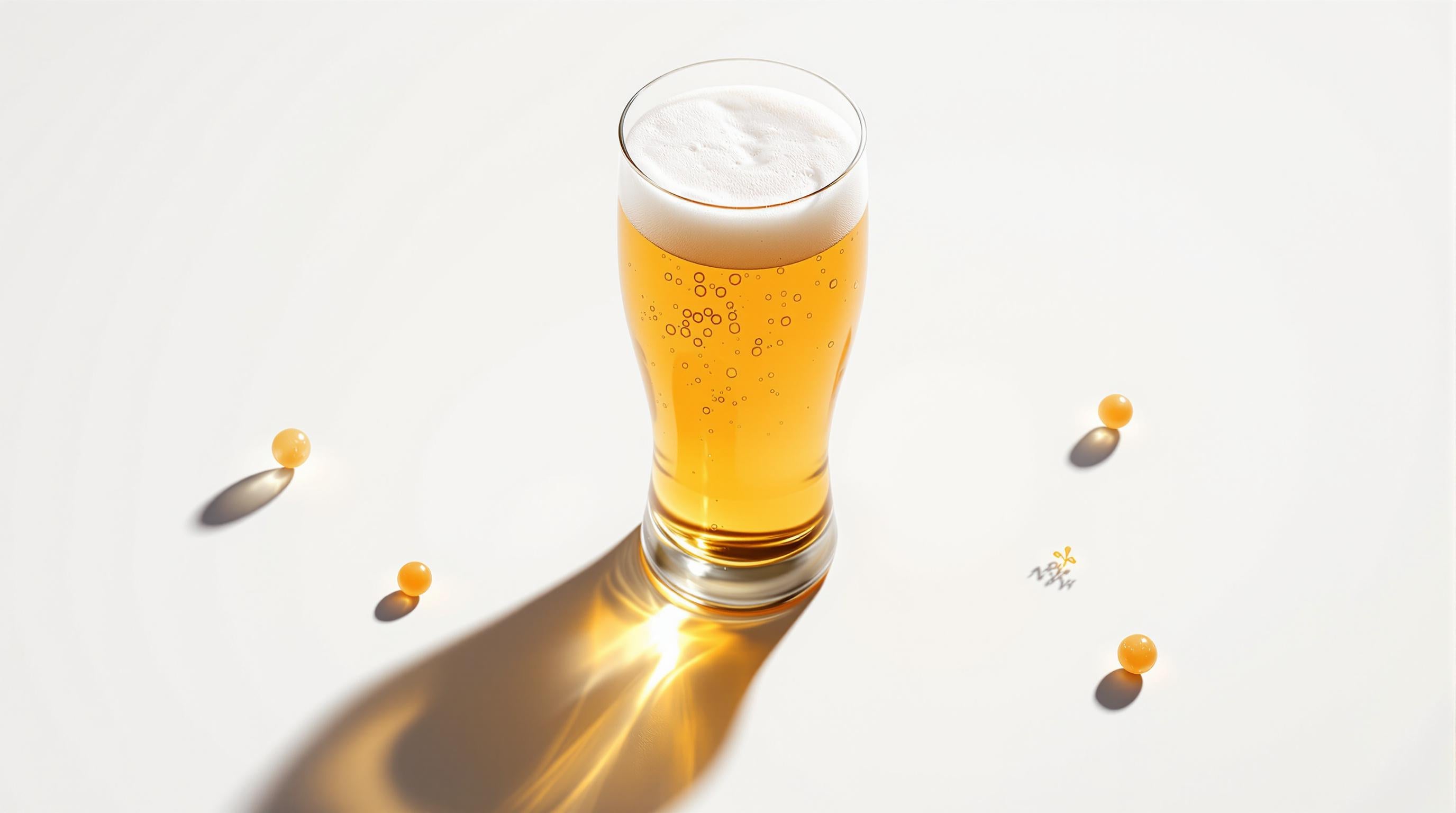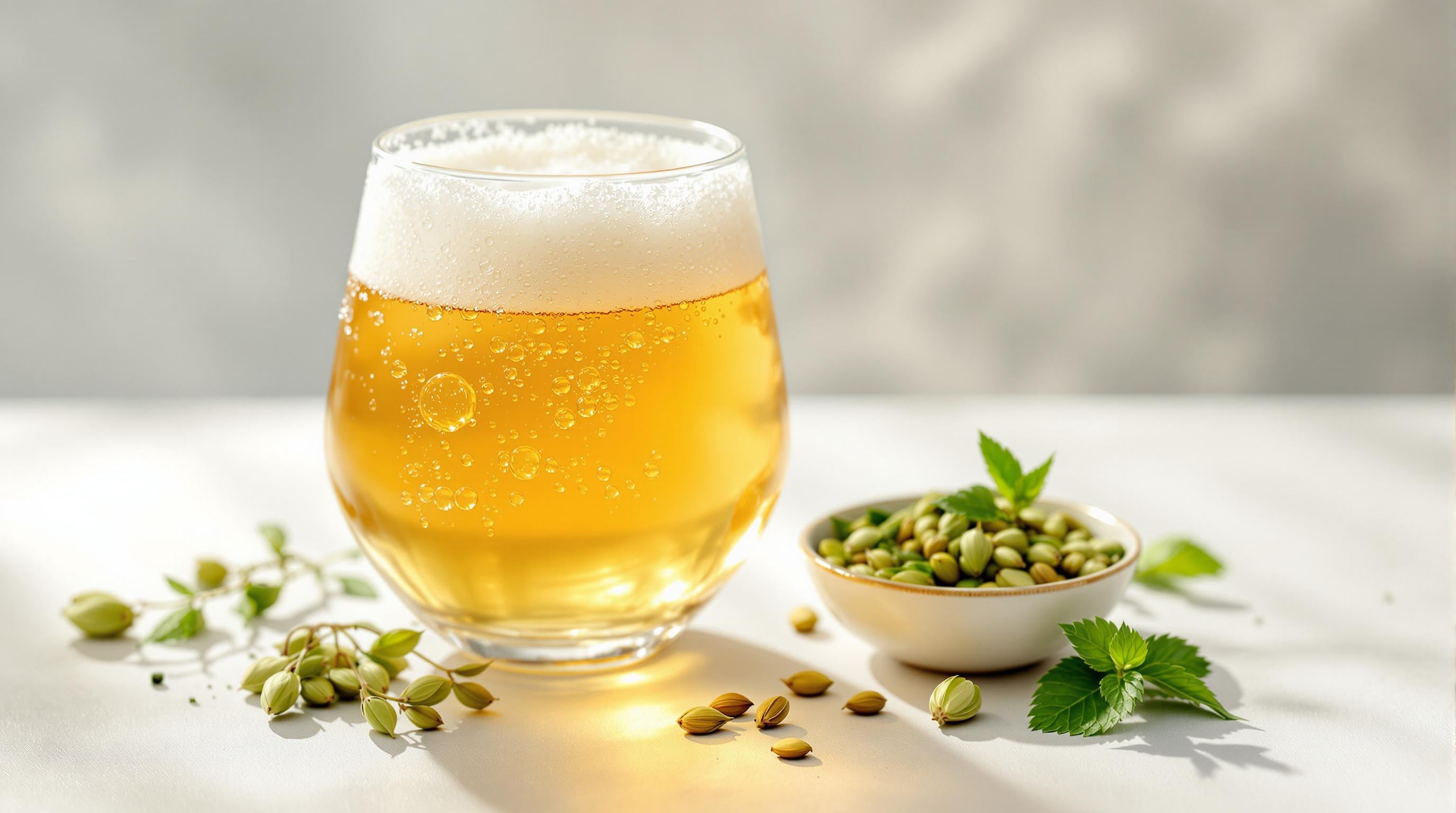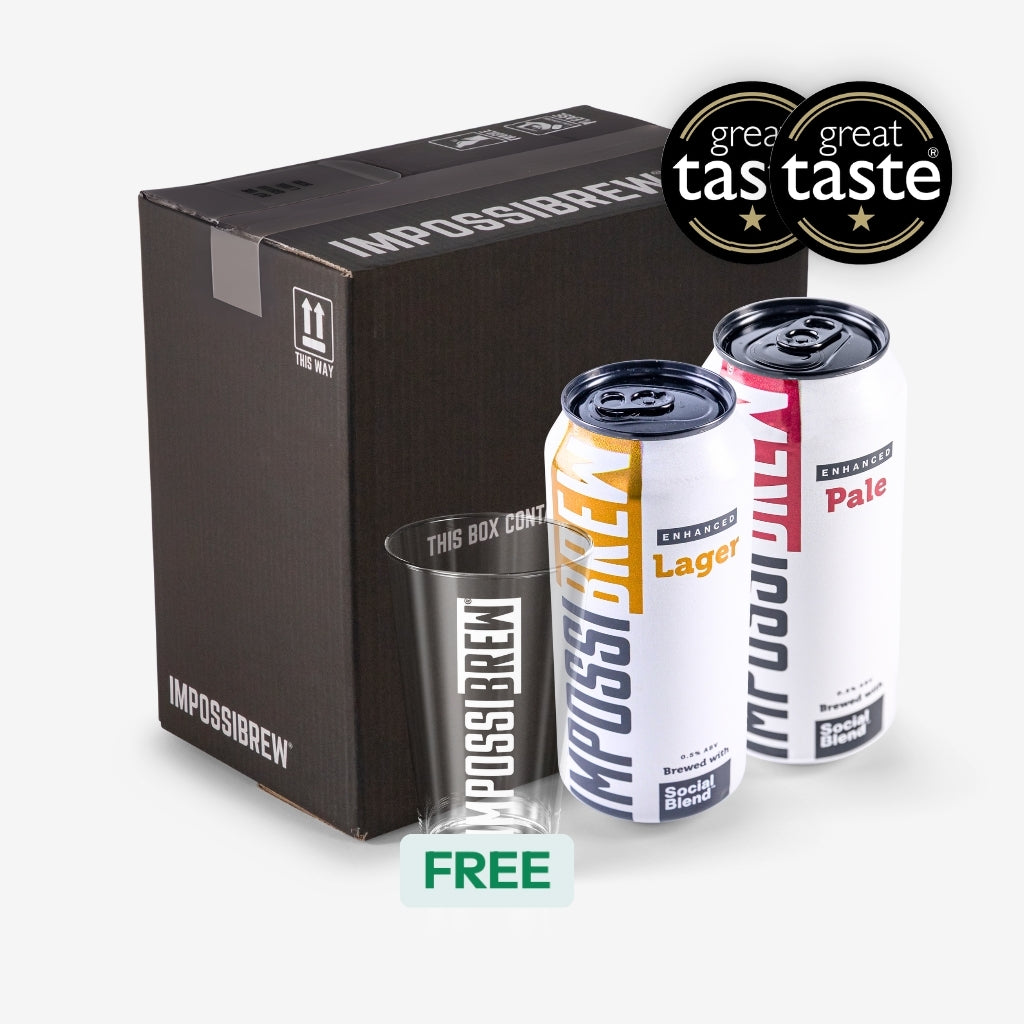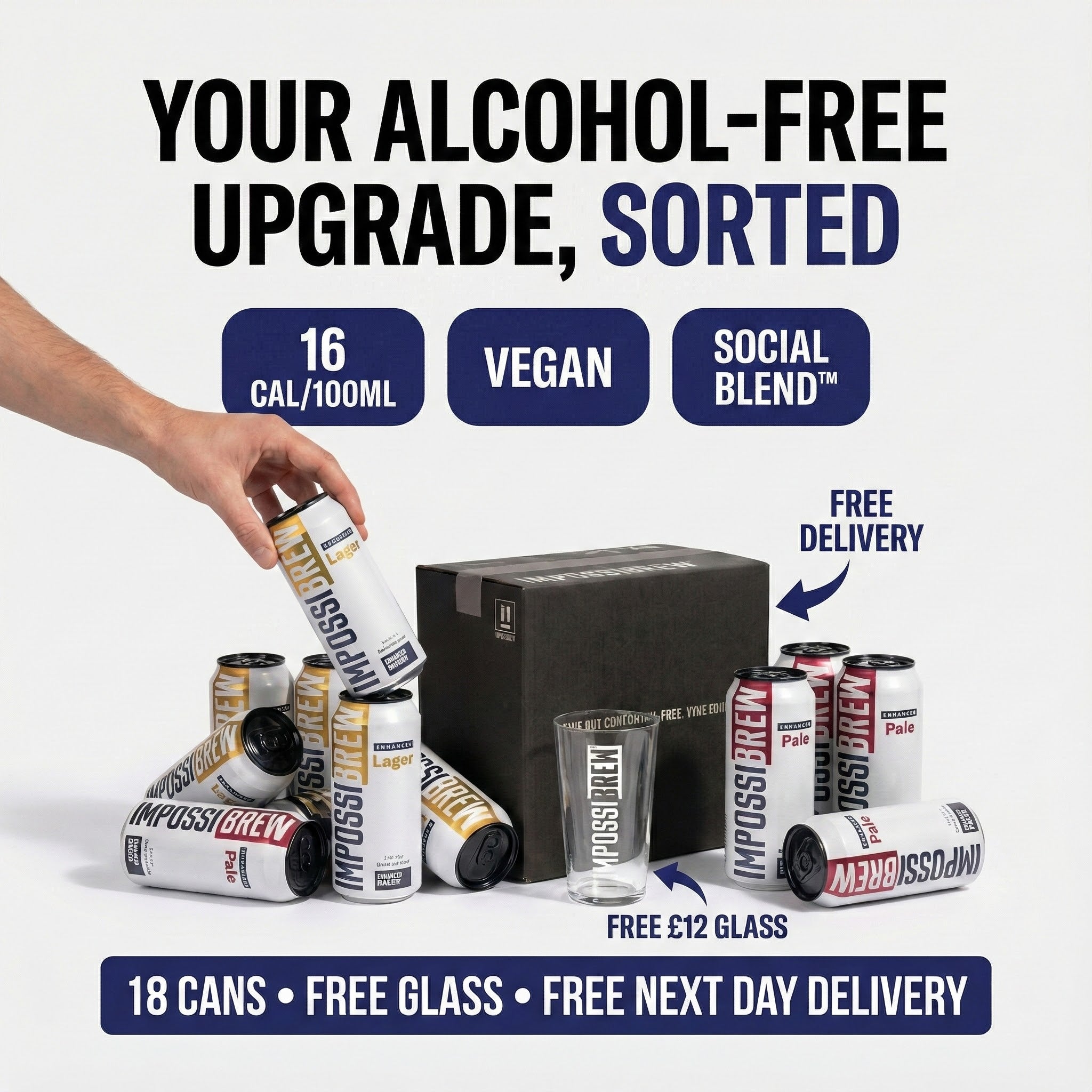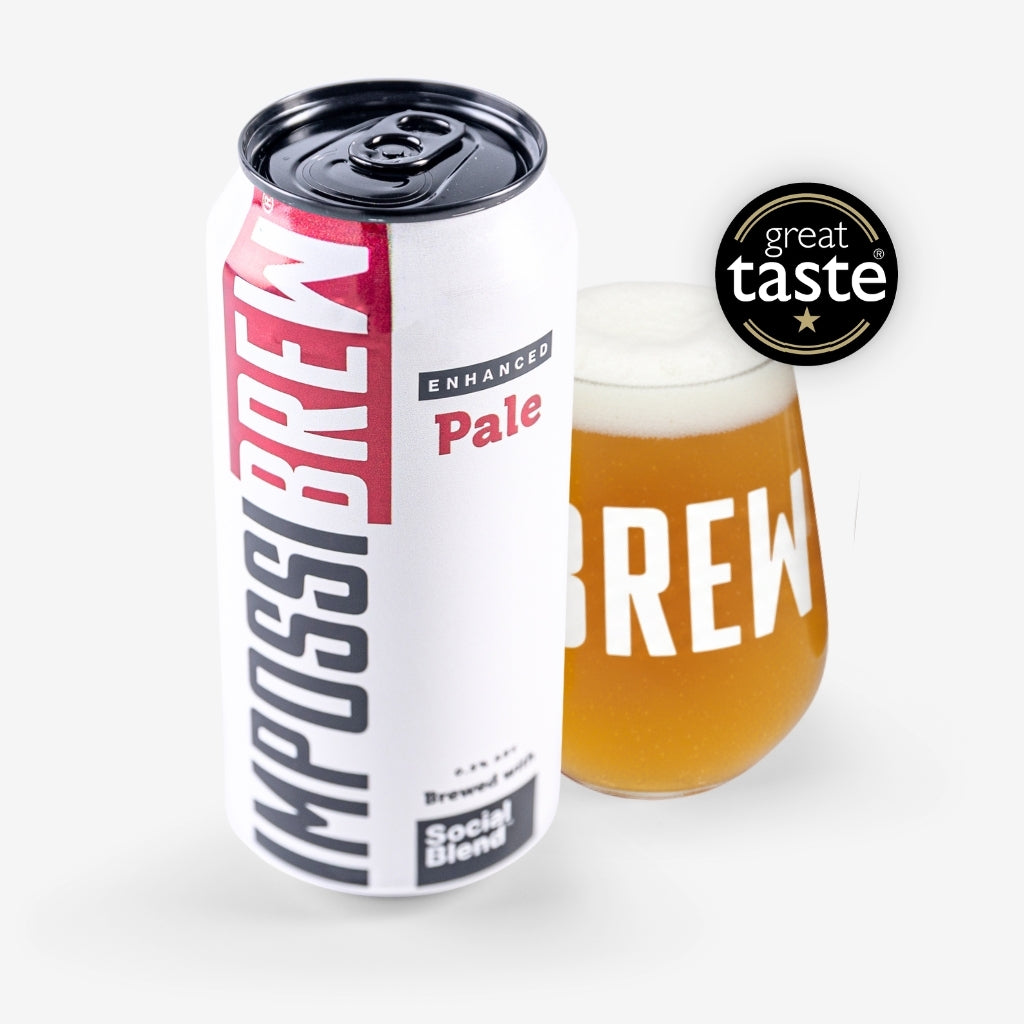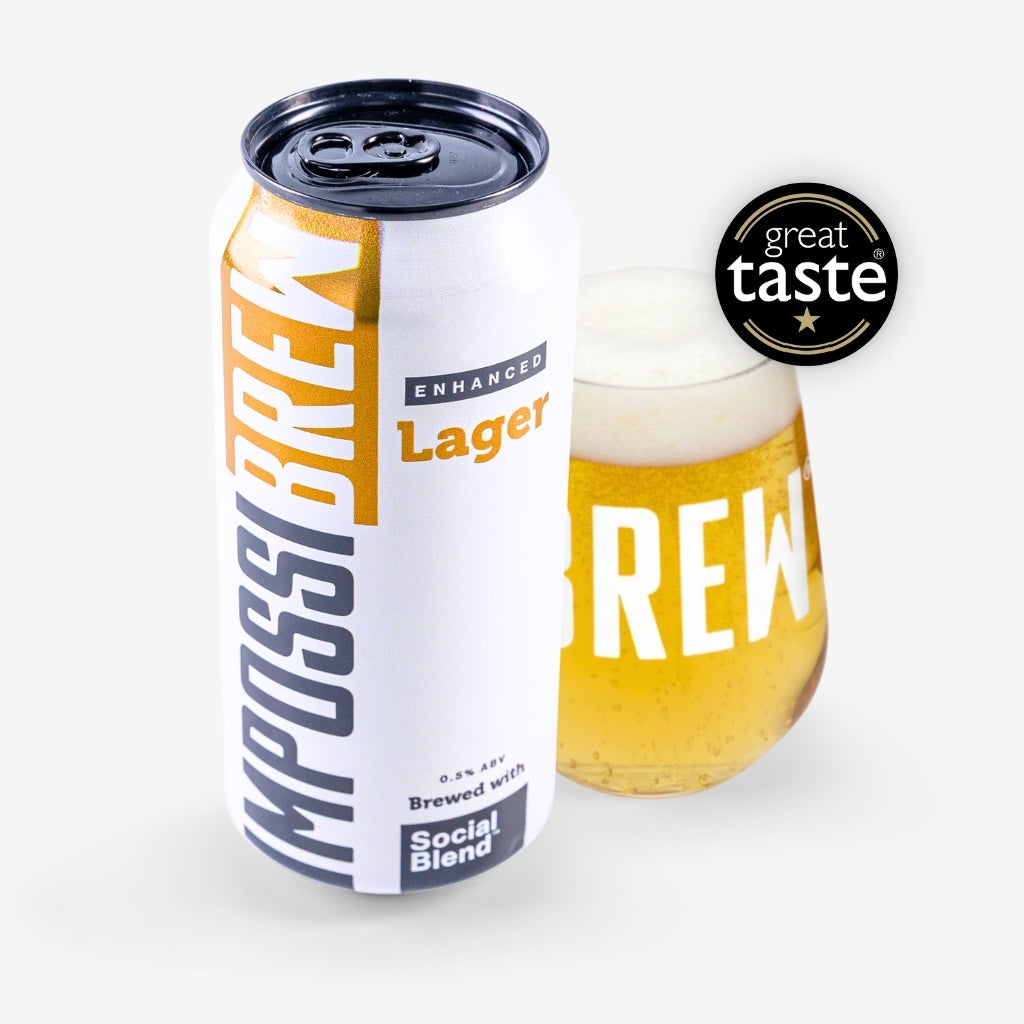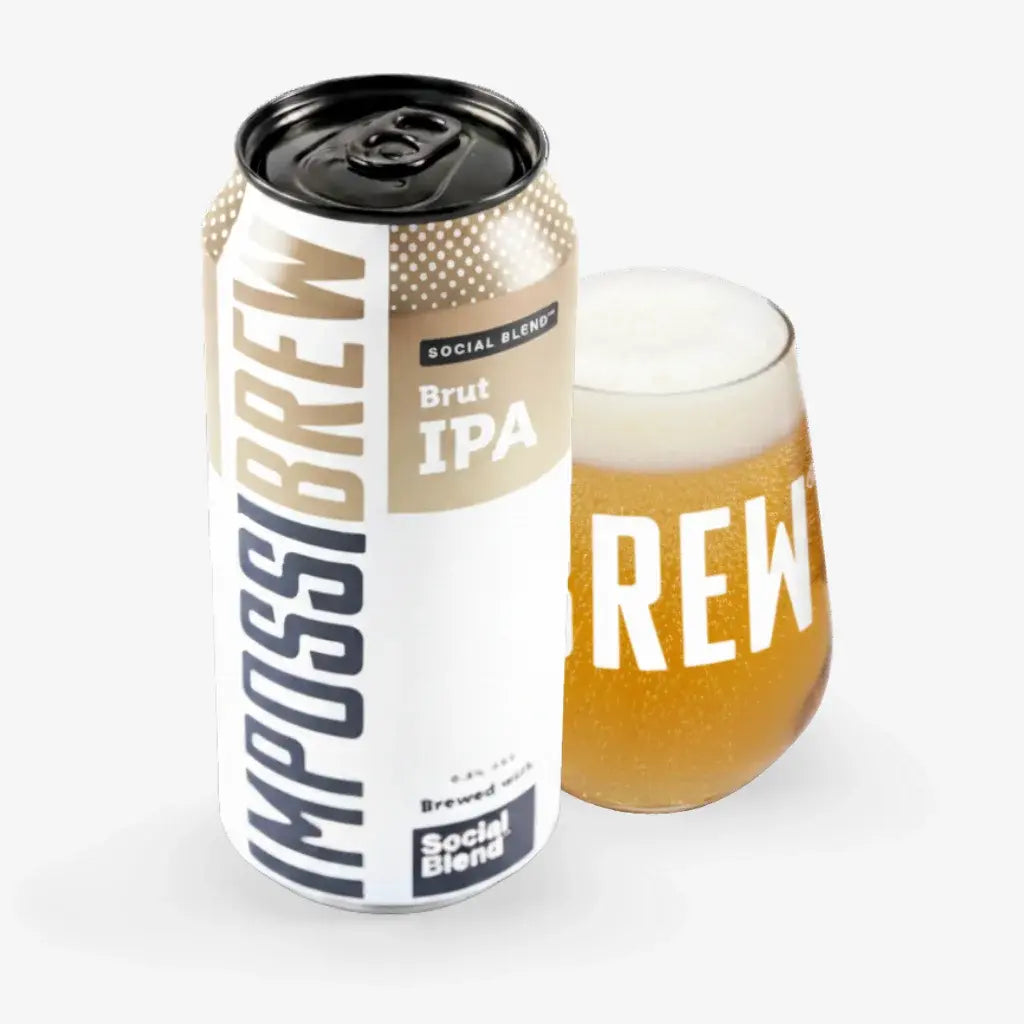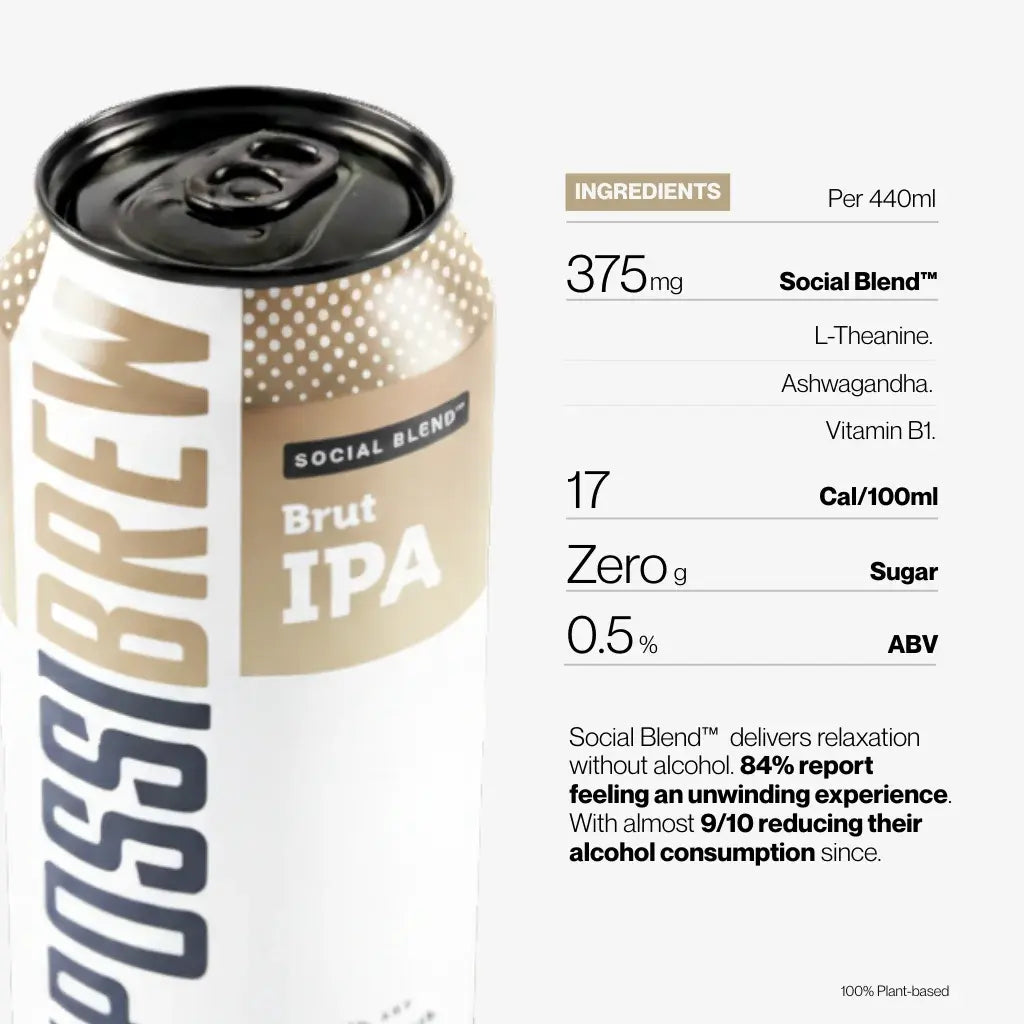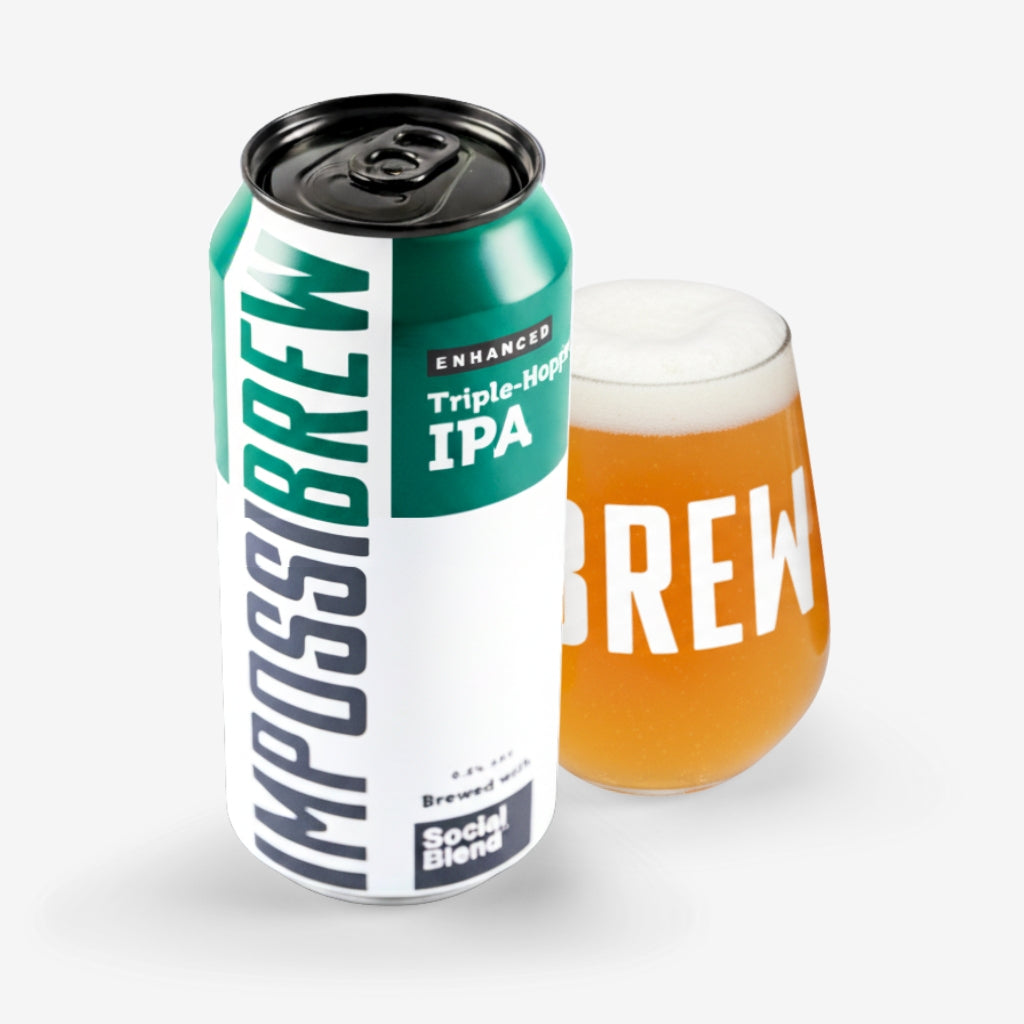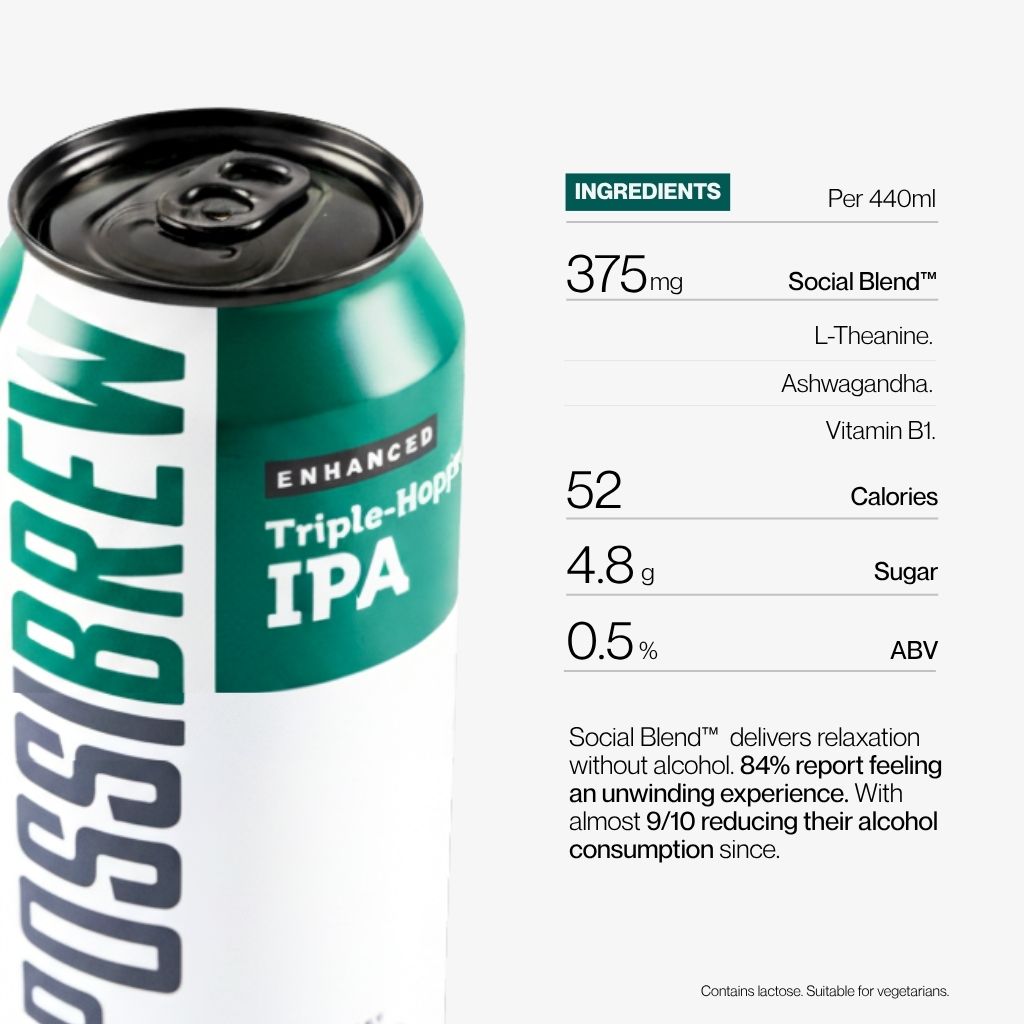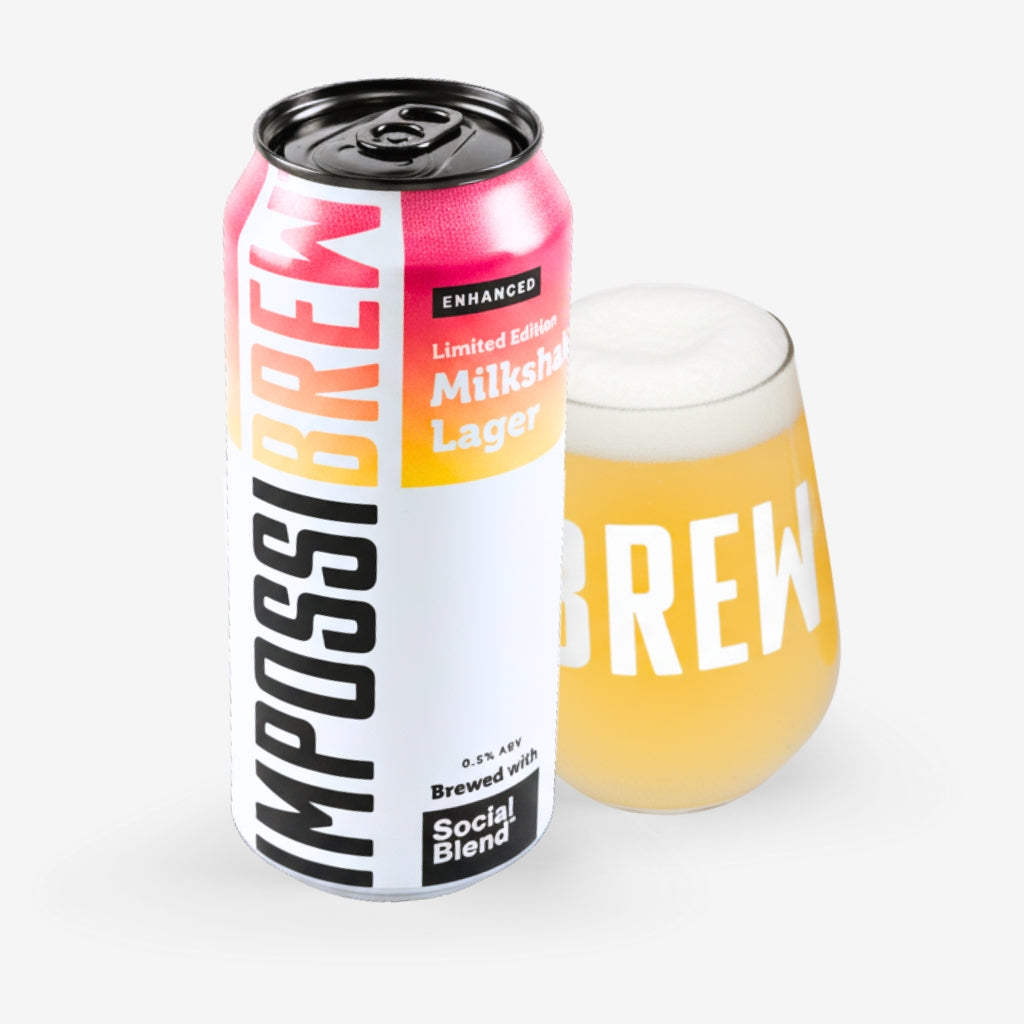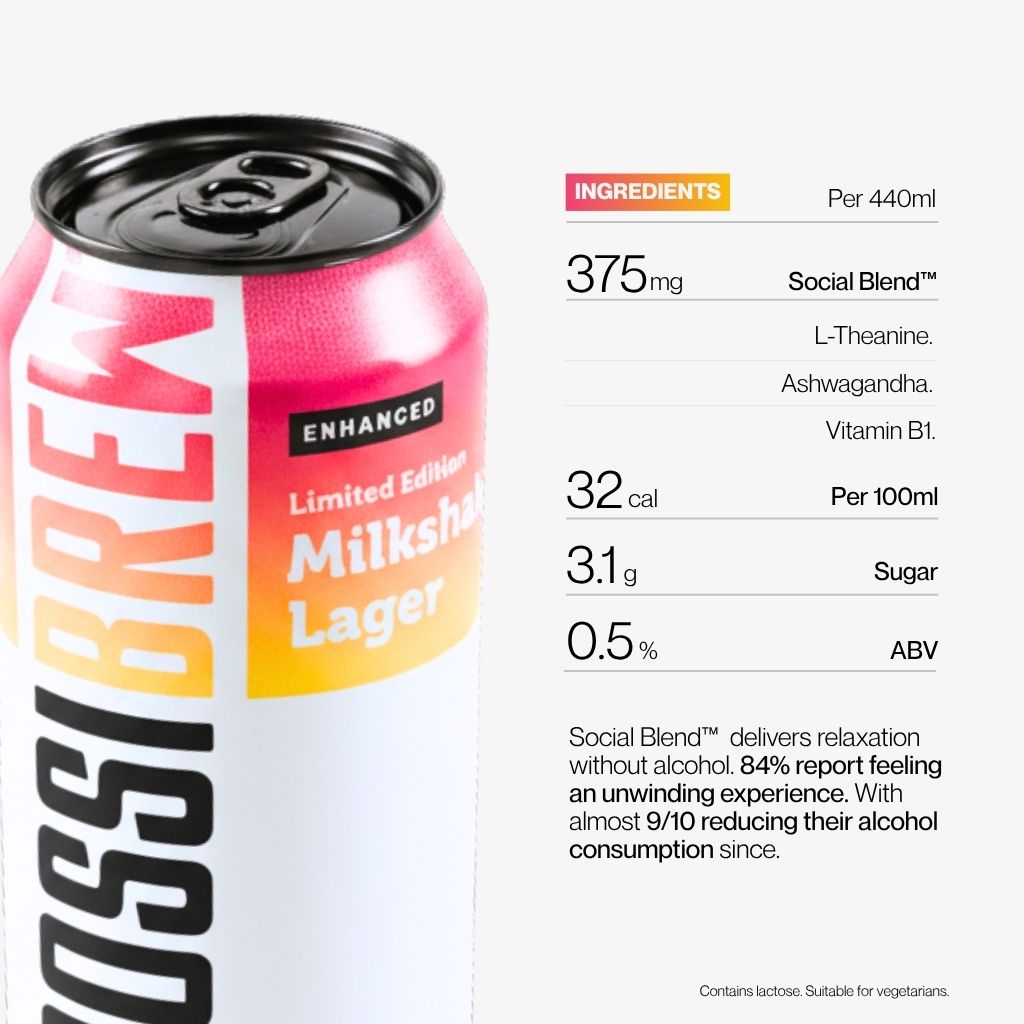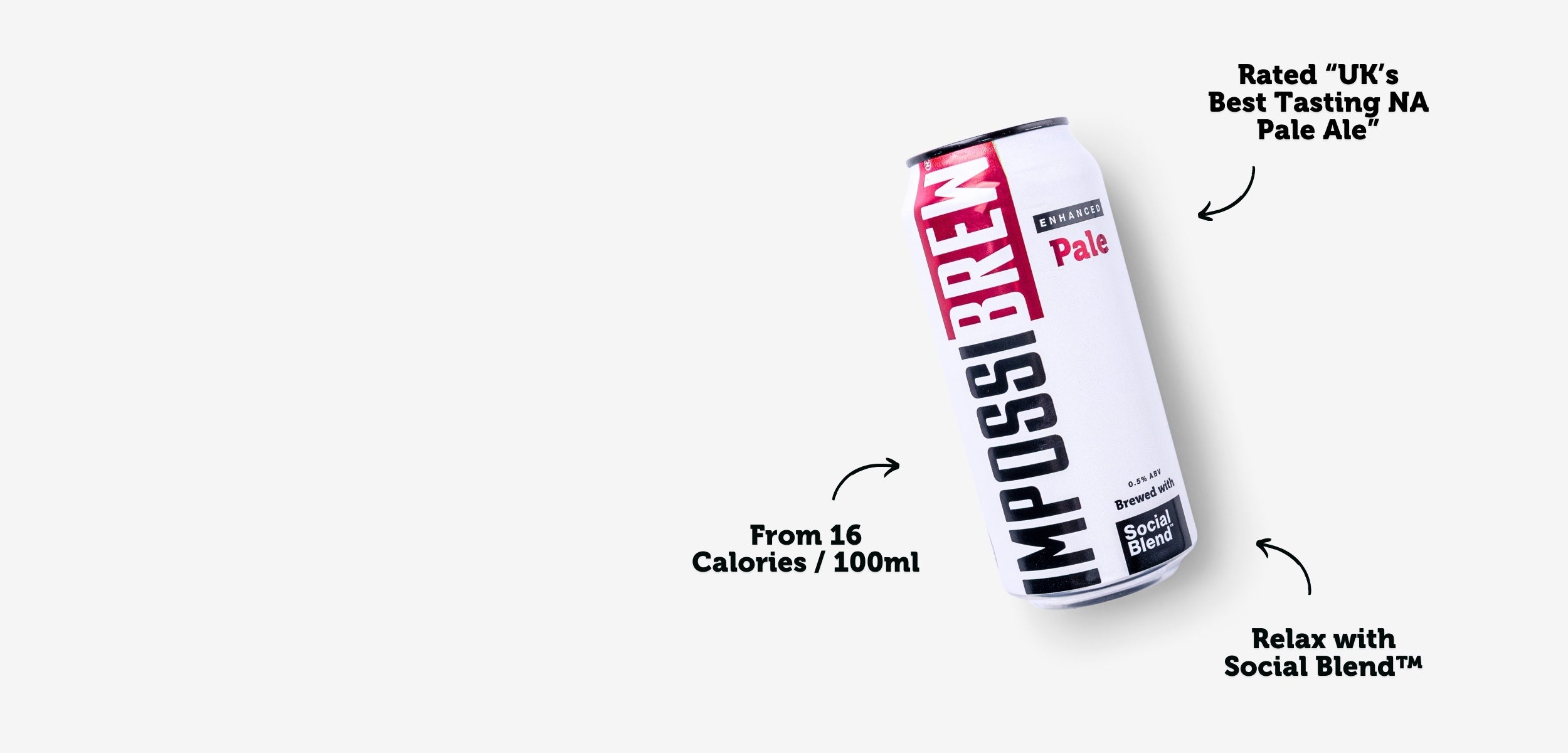For gluten-sensitive beer lovers, the idea of gluten-free beer made with wheat or barley might seem contradictory. Here's how it works:
-
Two Methods:
- Enzymatic Treatment: Enzymes like Clarity Ferm break down gluten in traditional grains (e.g., wheat, barley) into smaller fragments, reducing gluten to safe levels (below 20 ppm).
- Alternative Grains: Beers brewed with naturally gluten-free grains like sorghum, rice, millet, or buckwheat avoid gluten entirely.
-
Two Types of Gluten-Free Beer:
- Gluten-Free: Made with grains that naturally lack gluten and meet strict safety standards for celiac disease.
- Gluten-Reduced: Made with traditional grains but treated to lower gluten levels; not always safe for celiac sufferers.
-
Key Differences:
- Gluten-free beers rely on alternative grains and dedicated equipment.
- Gluten-reduced beers taste closer to traditional beer but may still contain trace gluten.
Quick Comparison:
| Feature | Gluten-Free Beer | Gluten-Reduced Beer |
|---|---|---|
| Grains Used | Sorghum, millet, rice, etc. | Barley, wheat |
| Gluten Content | < 20 ppm | May exceed 20 ppm |
| Safety for Celiac | Safe | Not recommended |
| Taste Profile | Unique flavors | Similar to traditional beer |
Understanding these methods and distinctions can help you choose a beer that fits your dietary needs while still enjoying great flavor.
Gluten in Beer Explained
Gluten: What It Is and Why It's in Beer
Gluten is a protein naturally found in grains like wheat, barley, and rye - key ingredients in traditional beer brewing. These grains have been staples in brewing for centuries, making gluten a natural part of most beers [1]. Understanding its role in brewing sheds light on why creating gluten-free beer comes with unique hurdles.
Here's a quick look at how traditional brewing grains stack up against gluten-free alternatives:
| Traditional Brewing Grains (Contain Gluten) | Gluten-Free Brewing Grains |
|---|---|
| Barley (most common) | Sorghum |
| Wheat | Rice |
| Rye | Millet |
| Malted Oats | Buckwheat |
| Quinoa | |
| Teff |
Gluten's Role in Brewing
Gluten affects several important aspects of beer production [2]:
- Structure: It contributes to the beer's body, mouthfeel, and how well the foam (or "head") holds up.
- Flavor: Grains like barley, which contain gluten, are responsible for the malty sweetness and rich flavors that define traditional beers [1].
- Stability: Gluten proteins help ensure the beer maintains its consistency over time [2].
Although gluten is central to traditional brewing, modern methods now allow brewers to either remove or neutralize it, making it possible to produce beer without sacrificing quality [2][3].
Science of Gluten-Free Beer
Removing or Breaking Down Gluten
Gluten is a key component in traditional beer brewing, but modern techniques allow brewers to reduce or eliminate it while maintaining the beer's quality. One common method involves enzymatic treatments, such as prolyl endopeptidases (e.g., Clarity Ferm), which break gluten proteins into smaller pieces. This process can lower gluten levels to amounts considered safe for most people with gluten sensitivities [2].
Here are two main approaches used in gluten-free beer production:
| Method | Result |
|---|---|
| Enzymatic Treatment | Reduces gluten to levels below 20 ppm |
| Advanced Filtration | Removes leftover gluten fragments |
Once the gluten is reduced or removed, brewers must meet strict labeling requirements to ensure the beer is safe for consumers.
Gluten-Free Certification and Labeling
In the U.S., the Tax and Trade Bureau of Alcohol, Tobacco, and Firearms (TTB) regulates gluten-free beer, requiring it to contain less than 20 ppm of gluten [3]. Beers labeled as "gluten-reduced" may not meet this strict threshold but undergo processes to significantly lower gluten content.
There are two main categories:
- Gluten-Free: Contains less than 20 ppm of gluten, achieved either naturally or through treatment.
- Gluten-Reduced: Treated to lower gluten levels but might not meet the under-20 ppm standard.
Some breweries skip enzymatic treatments altogether by using grains that are naturally free of gluten. This ensures compliance with the most stringent gluten-free standards and maintains the beer's quality [2].
As brewers refine their methods, the science of gluten removal continues to improve [2][4]. While certifications provide clarity for consumers, the brewing process itself is critical to ensuring safe gluten levels in the final product.
Brewing Gluten-Free Beers
Alternative Grains in Gluten-Free Brewing
Brewers craft gluten-free beers by using grains like sorghum, rice, millet, and buckwheat, which don't contain gluten. Each of these grains brings its own flavor and texture to the beer [1].
| Grain Type | Characteristics | Flavor Notes |
|---|---|---|
| Sorghum | Easily fermentable | Crisp |
| Millet | Similar to barley | Sweet |
| Buckwheat | Improves foam | Nutty |
| Rice | Provides clarity | Clean |
For example, Buck Wild Pale Ale, a 100% gluten-free beer from the Bay Area, uses a mix of buckwheat and millet. This combination balances a nutty richness with hop bitterness, creating a well-rounded flavor [5].
Adjusting Brewing Techniques for Gluten-Free Beers
Brewing gluten-free beer isn't just about switching grains - it also requires some adjustments to the brewing process:
- Temperature Adjustments: Gluten-free grains need precise temperature control during mashing to properly break down starches [1].
- Fermentation Tweaks: Special yeast strains are selected to work effectively with these grains [2].
- Strict Quality Standards: Breweries modify equipment and processes to keep gluten levels under 20 ppm, ensuring the beer meets gluten-free safety standards [3].
These methods make it possible for those with gluten sensitivities to enjoy a variety of beers without sacrificing taste or safety. However, it's important to understand the difference between gluten-free and gluten-reduced beers when making your choice.
sbb-itb-a752bf8
Related video from YouTube
Gluten-Free vs. Gluten-Reduced Beers: A Comparison
For anyone with gluten sensitivities, knowing the difference between gluten-free and gluten-reduced beers is key. While both cater to those avoiding gluten, their brewing methods and safety levels vary a lot.
Gluten-free beers are made using grains that naturally contain no gluten, such as sorghum, rice, millet, or buckwheat. These beers are brewed to maintain gluten levels below 20 ppm, meeting the safety standards for people with celiac disease [1][3].
Gluten-reduced beers, on the other hand, are brewed with traditional grains like barley or wheat. Enzymes are then added to break down gluten proteins. While this process can lower gluten levels, it doesn’t guarantee safety for those with celiac disease, as trace amounts might remain [2][4].
A standout example of a gluten-free beer is Lakefront Brewery's New Grist, which avoids enzymatic treatments entirely. Instead, they use only naturally gluten-free grains, ensuring a safe option for those with strict dietary restrictions [3].
Comparison Table: Gluten-Free vs. Gluten-Reduced Beers
| Feature | Gluten-Free Beer | Gluten-Reduced Beer |
|---|---|---|
| Grains Used | Sorghum, rice, millet, buckwheat | Barley, wheat |
| Production Method | Brewed with naturally gluten-free grains | Enzymes used to reduce gluten |
| Gluten Content | Less than 20 ppm | May exceed 20 ppm |
| Certification | Certified gluten-free | Rarely certified |
| Safety for Celiac | Safe for consumption | Not recommended |
| Taste Profile | Unique flavors from alternative grains | Similar to traditional beer |
| Production Facility | Dedicated gluten-free equipment | Standard brewing equipment |
| Cost Factors | Higher due to specialty ingredients | Lower due to traditional grains |
The key difference lies in their production and safety. Gluten-free beers require specialized equipment and ingredients to avoid cross-contamination, making them a safer choice for those with severe gluten sensitivities [2][3].
For gluten-sensitive drinkers, knowing these distinctions helps in choosing a beer that aligns with their health needs.
Conclusion: Choosing Gluten-Free Beer Wisely
Brewers use two main methods to produce gluten-free beer: brewing with naturally gluten-free grains or applying enzymes to reduce gluten levels. Knowing these approaches can help you pick a beer that suits your dietary requirements.
Tips for Gluten-Sensitive Consumers
If you have celiac disease or a severe gluten sensitivity, beers made with naturally gluten-free grains are your safest bet. Look for certifications from organizations like GFCO or CSA, and prioritize breweries that operate in dedicated gluten-free facilities.
Enzymes can lower gluten content by over 90% [2][6], but this doesn’t guarantee safety for everyone with celiac disease. Beers like Lakefront Brewery's New Grist, which rely on dedicated gluten-free equipment and ingredients, offer extra peace of mind [3].
The TTB enforces strict rules for gluten-free labeling, making it easier for you to choose wisely. If you're unsure, reach out to breweries to ask about their production methods and testing practices.
Armed with this knowledge, you can explore gluten-free beer options with confidence, even as brewing processes and enzyme use continue to raise questions.
FAQs
How is gluten-free beer brewed?
Brewers create gluten-free beer in two main ways: by using grains like sorghum, millet, and rice that naturally lack gluten, or by adding enzymes to break down gluten in traditional grains such as barley and wheat [1][2]. Each method results in a beer that's safe for gluten-sensitive individuals, though the taste may differ from conventional beers [1][2].
What enzyme removes gluten from beer?
Clarity Ferm is an enzyme that lowers gluten levels to below 20 ppm by breaking down gluten proteins into smaller fragments. While this meets FDA standards for gluten-free labeling, it may still pose risks for those with celiac disease [7][3].
These brewing approaches and tools allow consumers to choose gluten-free beers that best suit their health requirements.

